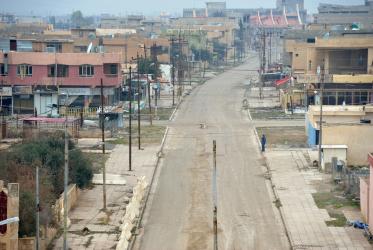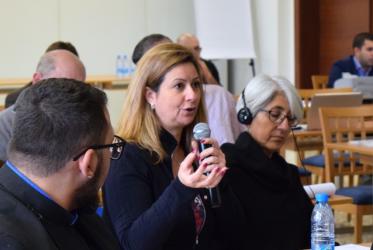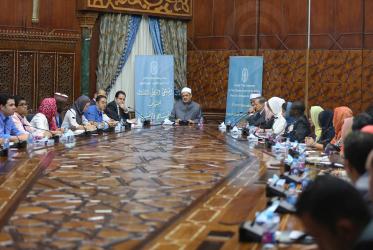Displaying 81 - 100 of 115
‘No Christmas bells in Mosul’ for a third year, says Assyrian priest
14 December 2016
From Bethlehem, WCC general secretary: “Together we are stronger”
08 December 2016
Churches’ diaconal action in the Middle East analyzed
01 December 2016
WCC general secretary reflects on peace in Palestine and Israel
20 September 2016
Pilgrimage and youth
28 June 2016
Winners of WCC photo contest announced
09 May 2016
Tveit highlights unjust water resources for Palestinians
10 February 2016
WCC Executive Committee works toward a future of peace and justice
19 November 2015
Common prayer in Geneva responds to acts of violence
16 November 2015
Local and global work saves lives
22 October 2015







